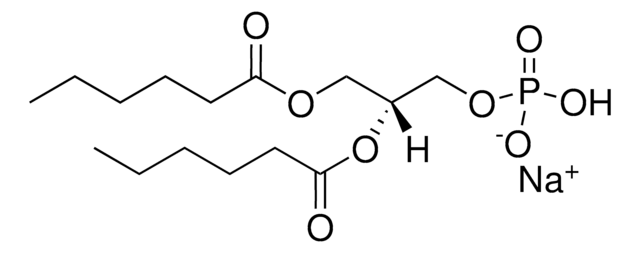870817P
Avanti
N-palmitoylglycine
Avanti Research™ - A Croda Brand
Synonym(s):
Glycine, N-(1-oxohexadecyl)-
About This Item
Recommended Products
form
powder
packaging
pkg of 1 × 10 mg (870817P-10mg)
manufacturer/tradename
Avanti Research™ - A Croda Brand
lipid type
neutral glycerides
neutral lipids
shipped in
dry ice
storage temp.
−20°C
SMILES string
O=C(CCCCCCCCCCCCCCC)NCC(O)=O
InChI
1S/C18H35NO3/c1-2-3-4-5-6-7-8-9-10-11-12-13-14-15-17(20)19-16-18(21)22/h2-16H2,1H3,(H,19,20)(H,21,22)
InChI key
KVTFEOAKFFQCCX-UHFFFAOYSA-N
General description
Application
Biochem/physiol Actions
Packaging
Legal Information
Storage Class Code
11 - Combustible Solids
WGK
WGK 3
Flash Point(F)
Not applicable
Flash Point(C)
Not applicable
Certificates of Analysis (COA)
Search for Certificates of Analysis (COA) by entering the products Lot/Batch Number. Lot and Batch Numbers can be found on a product’s label following the words ‘Lot’ or ‘Batch’.
Already Own This Product?
Find documentation for the products that you have recently purchased in the Document Library.
Our team of scientists has experience in all areas of research including Life Science, Material Science, Chemical Synthesis, Chromatography, Analytical and many others.
Contact Technical Service








